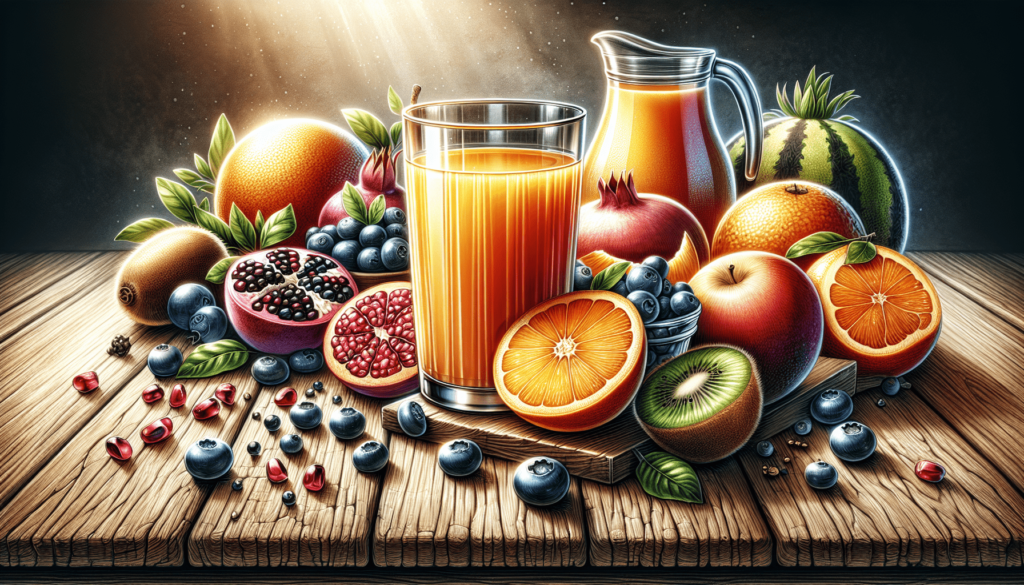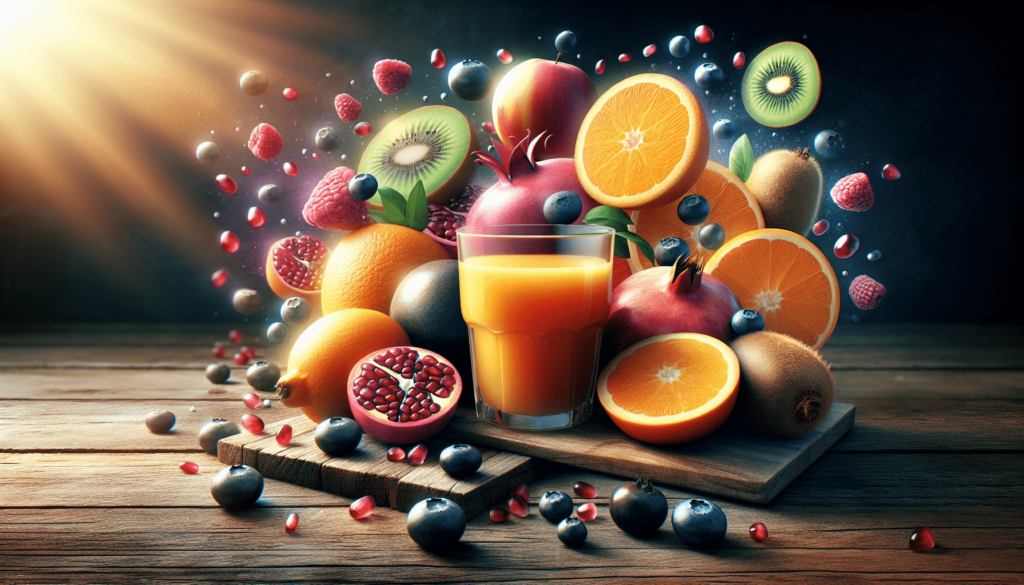Have you ever wondered which drinks are good for sperm health? This is an important question, especially if you’re planning to start a family or simply want to maintain optimal reproductive health. While many factors can affect sperm health, such as diet, exercise, and lifestyle, what you drink also plays a crucial role. In this article, we’ll explore the best drinks for sperm health, highlighting how they can benefit you and why you might consider incorporating them into your daily routine.

Understanding Sperm Health
Before we get to the drinks, let’s first understand what sperm health means. Sperm health encompasses several aspects, including sperm count, morphology (shape and structure), motility (movement), and volume. For optimal fertility, each of these elements must be in good condition. Factors like diet, exercise, stress, and lifestyle habits can significantly impact these parameters.
Factors Affecting Sperm Health
Several factors can affect sperm health, both positively and negatively. It’s essential to identify and understand these factors to make informed choices.
- Diet: A well-balanced diet rich in vitamins and minerals is essential for sperm production.
- Exercise: Regular physical activity can improve sperm quality.
- Stress: High stress levels can negatively impact sperm health.
- Lifestyle: Smoking, alcohol, and drug use can harm sperm production and quality.
The Best Drinks for Sperm Health
A balanced diet and healthy lifestyle are crucial for maintaining sperm health, and this extends to your choice of beverages. Let’s take a look at some of the best drinks that can support and improve your sperm health.
Green Tea
Green tea is renowned for its antioxidant properties, which can help combat oxidative stress—a factor that negatively affects sperm health. Rich in catechins, green tea can improve sperm motility and protect the DNA in sperm cells.
Benefits of Green Tea:
- Rich in antioxidants
- Improves sperm motility
- Protects sperm DNA
Pomegranate Juice
Pomegranate juice is another excellent drink for sperm health due to its high antioxidant content. Research has shown that pomegranate juice can increase sperm count and motility while also reducing abnormal sperm forms.
Benefits of Pomegranate Juice:
- Antioxidant-rich
- Increases sperm count and motility
- Reduces abnormal sperm forms
Water
Never underestimate the power of staying hydrated. Water is crucial for every bodily function, including the production of healthy sperm. Adequate hydration helps maintain a healthy volume of ejaculate and improves sperm motility.
Benefits of Water:
- Essential for hydration
- Maintains ejaculate volume
- Improves sperm motility
Tomato Juice
Tomato juice contains lycopene, a powerful antioxidant that has been shown to improve sperm morphology and reduce DNA damage. Regular consumption of tomato juice can be beneficial for overall sperm quality.
Benefits of Tomato Juice:
- Rich in lycopene
- Improves sperm morphology
- Reduces DNA damage
Carrot Juice
Carrot juice is loaded with nutrients like beta-carotene, which can enhance sperm motility and overall quality. The antioxidants present in carrot juice also help combat oxidative stress.
Benefits of Carrot Juice:
- Rich in beta-carotene
- Enhances sperm motility
- Combats oxidative stress
Less Effective or Harmful Drinks
While some drinks are beneficial for sperm health, others can be detrimental. It’s essential to know which beverages to limit or avoid.
Caffeinated Beverages
Moderate caffeine consumption is generally considered safe, but excessive intake can negatively affect sperm quality. High caffeine levels can lead to decreased sperm count and motility.
Alcohol
Alcohol consumption can severely impact sperm health. It can reduce sperm count, increase abnormal forms, and even lead to hormonal imbalances that affect fertility.
Sugar-Sweetened Beverages
Drinks like sodas and energy drinks are high in sugar, which can contribute to oxidative stress and negatively affect sperm health. These beverages should be consumed in moderation or avoided entirely.
The Role of Antioxidants
Antioxidants play a significant role in maintaining and improving sperm health. Free radicals can cause oxidative stress, leading to DNA damage in sperm cells. Antioxidants neutralize free radicals, protecting sperm from damage.
Key Antioxidants
Several antioxidants are particularly beneficial for sperm health. These include:
- Vitamin C: Found in citrus fruits and juices.
- Vitamin E: Present in nuts, seeds, and vegetable oils.
- Vitamin A: Available in fruits like carrots and tomatoes.
How Antioxidants Work
Antioxidants work by neutralizing free radicals before they can cause cellular damage. This protective effect is crucial for maintaining the integrity and quality of sperm.

Nutrients That Promote Sperm Health
In addition to antioxidants, other nutrients are vital for optimal sperm health. These include:
Zinc
Zinc is essential for sperm production and quality. Foods rich in zinc include nuts, seeds, and legumes. It’s also available in some fortified drinks.
Folate
Folate is crucial for DNA synthesis and repair. It helps maintain healthy sperm count and motility. Leafy greens, beans, and citrus fruits are excellent sources of folate.
Omega-3 Fatty Acids
Omega-3 fatty acids found in fish oil and flaxseed can improve sperm morphology and motility. These essential fats help reduce inflammation and oxidative stress.
Practical Tips
Knowing which drinks and nutrients promote sperm health is just the beginning. Here are some practical tips to incorporate these beneficial beverages into your daily routine:
Morning Ritual
Start your day with a glass of water to kickstart hydration. Follow it with a cup of green tea or a nutrient-rich smoothie that includes pomegranate juice, carrot juice, or tomato juice.
Mid-Day Hydration
Keep a bottle of water at your desk and make a habit of sipping it throughout the day. Consider a mid-morning snack with a glass of carrot juice or tomato juice.
Evening Wind Down
Wind down your day with another glass of water or a relaxing cup of green tea. Avoid caffeinated or sugary drinks in the evening to promote better sleep and improved sperm health.
Foods to Complement Your Drinks
Pairing the right foods with your healthy drinks can further enhance sperm health. Here are some food and drink pairings to consider:
| Drink | Suggested Food Pairing |
|---|---|
| Green Tea | Nuts and seeds (rich in zinc) |
| Pomegranate Juice | Spinach salad (high in folate) |
| Water | Salmon (rich in Omega-3 fatty acids) |
| Tomato Juice | Whole-grain toast (high in vitamin E) |
| Carrot Juice | Citrus fruits (rich in vitamin C) |
Other Lifestyle Changes
Healthy drinks and a balanced diet are only part of the equation. Some additional lifestyle changes can help improve your sperm health:
Exercise Regularly
Regular physical activity can boost overall health and improve sperm quality. Aim for at least 30 minutes of moderate exercise most days of the week.
Manage Stress
High stress levels can negatively impact sperm production. Practice stress-reducing activities like meditation, yoga, or deep breathing exercises.
Avoid Harmful Substances
Limit or avoid the consumption of alcohol, caffeine, and sugar-sweetened beverages. Also, refrain from smoking and drug use, as these can severely affect sperm health.
Get Enough Sleep
Adequate sleep is essential for overall health, including sperm production. Aim for 7-9 hours of quality sleep per night.
Conclusion
Improving sperm health is a multifaceted approach that involves making better dietary and lifestyle choices. By incorporating beneficial drinks like green tea, pomegranate juice, and water into your daily routine, and pairing them with nutrient-rich foods, you can significantly enhance your reproductive health. Remember, it’s not just about what you drink, but also about leading a balanced lifestyle with regular exercise, stress management, and adequate sleep. Taking these steps can contribute to optimal sperm health and increase your chances of fertility. So, next time you reach for a drink, think about its impact on your sperm health and make a choice that supports your overall well-being.
